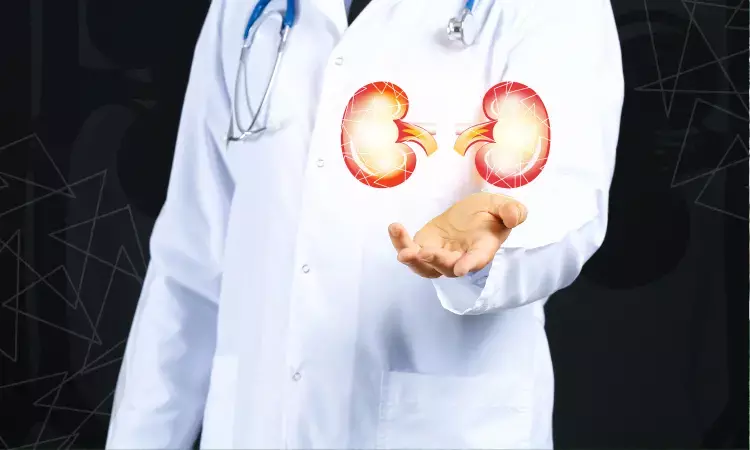- Home
- Medical news & Guidelines
- Anesthesiology
- Cardiology and CTVS
- Critical Care
- Dentistry
- Dermatology
- Diabetes and Endocrinology
- ENT
- Gastroenterology
- Medicine
- Nephrology
- Neurology
- Obstretics-Gynaecology
- Oncology
- Ophthalmology
- Orthopaedics
- Pediatrics-Neonatology
- Psychiatry
- Pulmonology
- Radiology
- Surgery
- Urology
- Laboratory Medicine
- Diet
- Nursing
- Paramedical
- Physiotherapy
- Health news
- Fact Check
- Bone Health Fact Check
- Brain Health Fact Check
- Cancer Related Fact Check
- Child Care Fact Check
- Dental and oral health fact check
- Diabetes and metabolic health fact check
- Diet and Nutrition Fact Check
- Eye and ENT Care Fact Check
- Fitness fact check
- Gut health fact check
- Heart health fact check
- Kidney health fact check
- Medical education fact check
- Men's health fact check
- Respiratory fact check
- Skin and hair care fact check
- Vaccine and Immunization fact check
- Women's health fact check
- AYUSH
- State News
- Andaman and Nicobar Islands
- Andhra Pradesh
- Arunachal Pradesh
- Assam
- Bihar
- Chandigarh
- Chattisgarh
- Dadra and Nagar Haveli
- Daman and Diu
- Delhi
- Goa
- Gujarat
- Haryana
- Himachal Pradesh
- Jammu & Kashmir
- Jharkhand
- Karnataka
- Kerala
- Ladakh
- Lakshadweep
- Madhya Pradesh
- Maharashtra
- Manipur
- Meghalaya
- Mizoram
- Nagaland
- Odisha
- Puducherry
- Punjab
- Rajasthan
- Sikkim
- Tamil Nadu
- Telangana
- Tripura
- Uttar Pradesh
- Uttrakhand
- West Bengal
- Medical Education
- Industry
Febuxostat slows eGFR decline in CKD patients of stages 3 and 4 with asymptomatic hyperuricemia

China: According to a study published in International Urology and Nephrology, Febuxostat delays the progression of Chronic Kidney Disease in stage 3 and 4 patients.
Previous studies have mentioned the usefulness of febuxostat in delaying chronic kidney disease (CKD) progression as it treats hyperuricemia. But the results remain controversial.
The researchers of the team led by Dr Hongtao Yang from the Department of Nephrology, First Teaching Hospital of Tianjin University of Traditional Chinese Medicine, Tianjin, China, did a randomized controlled study which included the Chinese population with a history of advanced CKD.
The study points are summarised below:
- One hundred patients from seven medical centres having CKD stages 3 and 4 with asymptomatic hyperuricemia were included in the study.
- There were two groups, control and febuxostat.
- The latter received febuxostat to titrate to achieve serum uric acid (SUA) < 6 mg/dL.
- Estimated glomerular filtration rate (eGFR) decline ≥ 30% or 50% were the primary outcomes measured in the study.
- The change in eGFR was the secondary outcome measured in the study.
- The researchers also performed a Safety analysis.
- Forty-seven patients in the febuxostat and 45 in the control groups completed the study.
- In the febuxostat group, seven patients constituting 14.9% of participants, had a 30% decline in eGFR, while 1 (2.1%) and 2 (4.3%) patients reached a 50% decline in eGFR or dialysis.
- Out of 45 patients in the control group, 13, 10, and 3 patients constituting 28.9 %, 22.2%, and 6.7 %, reached primary kidney outcomes separately.
- In the febuxostat group, the change in eGFR after 12 months from baseline was 0.50 mL/min/1.73 m2.
- In the control group, the change in eGFR was − 4.46 mL/min/1.73 m2.
- There was no difference in adverse events between the two groups.
To conclude, Febuxostat slowed eGFR decline in CKD patients of stages 3 and 4 and asymptomatic hyperuricemia. There was a significantly greater change in eGFR in the Febuxostat group compared to the control group.
Further reading:
Yang, H., Li, R., Li, Q. et al. Effects of febuxostat on delaying chronic kidney disease progression: a randomized trial in China. Int Urol Nephrol (2022). https://doi.org/10.1007/s11255-022-03437-5
BDS, MDS in Periodontics and Implantology
Dr. Aditi Yadav is a BDS, MDS in Periodontics and Implantology. She has a clinical experience of 5 years as a laser dental surgeon. She also has a Diploma in clinical research and pharmacovigilance and is a Certified data scientist. She is currently working as a content developer in e-health services. Dr. Yadav has a keen interest in Medical Journalism and is actively involved in Medical Research writing.
Dr Kamal Kant Kohli-MBBS, DTCD- a chest specialist with more than 30 years of practice and a flair for writing clinical articles, Dr Kamal Kant Kohli joined Medical Dialogues as a Chief Editor of Medical News. Besides writing articles, as an editor, he proofreads and verifies all the medical content published on Medical Dialogues including those coming from journals, studies,medical conferences,guidelines etc. Email: drkohli@medicaldialogues.in. Contact no. 011-43720751


